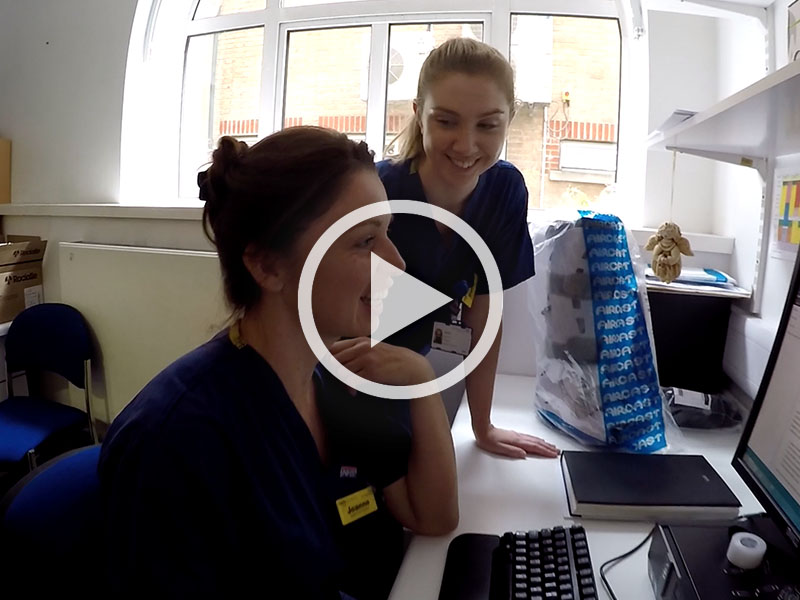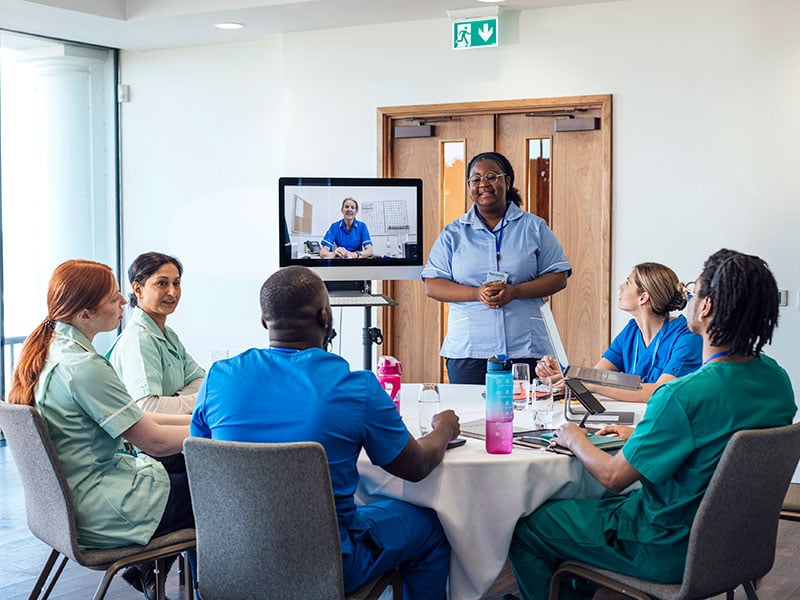Winter has always been a challenging time for those working in the health and care. But it is important to find time for learning and reflection.
The thought of fitting in continuing professional development (CPD) when your schedule is already busy may seem overwhelming. However, CPD activities can take many forms, and can include activity which you are doing as part of your usual working day.
CPD is any activity from which you learn or develop professionally, which enhances the service you provide to patients or service users.
Understanding CPD activities
CPD doesn’t have to be going on courses and doing projects, it can be carried out as part of your day-to-day role, so it’s likely you’re already participating in CPD activities.
It can be as simple as:
- Reflecting on patient contact at the end of the day
- Discussing and reviewing activities with other members of staff
- Observing how others operate in your workplace
- Adapting your own methods of working
There is developing evidence suggesting the most effective learning activities are interactive and encourage self-reflection. You should therefore look for opportunities to learn and reflect on your practice with others.
The table below sets out examples of CPD activities, which we hope you will find useful:
- Learning by doing
- Case studies
- Reflective practice
- Audit of service users
- Coaching from others
- Discussions with colleagues
- Peer review
- Work shadowing
- Secondments
- Job rotation
- Journal club
- In-service training
- Supervising staff or students
- Expanding your role
- Significant analysis of events
- Project work
- Filling in self-assessment questionnaires
- Gaining and learning from experience
- Involvement in the wider, profession-related work of your employer (for example, being a representative on a committee)
- Lecturing or teaching
- Mentoring
- Being an examiner
- Being a tutor
- Involvement in a professional body, specialist-interest group or other groups
- Maintaining or developing specialist skills (for example, musical skills)
- Giving presentations at conferences
- Organising journal clubs or other specialist groups
- Organising accredited courses
- Being an expert witness
- Supervising research or students
- Being a national assessor
- Courses
- Further education
- Research
- Attending conferences
- Writing articles or papers
- Going to seminars
- Distance or online learning
- Planning or running a course
- Going on courses accredited by a professional body
- Reading journals or articles
- Reviewing books or articles
- Keeping a file of your progress
- Updating your knowledge through the internet or TV
- Relevant public service or voluntary work
Recording little and often
It might often feel difficult to record CPD, on top of carrying it out. But a few simple changes make a big difference.
Thinking about it differently, you might find you are undertaking CPD multiple times a day without realising it. These instances can be recorded little and often, without needing to set aside chunks of time, and can become second nature.
Recording activities in this way should make your CPD workload much more manageable, and can inform your work going forward.



